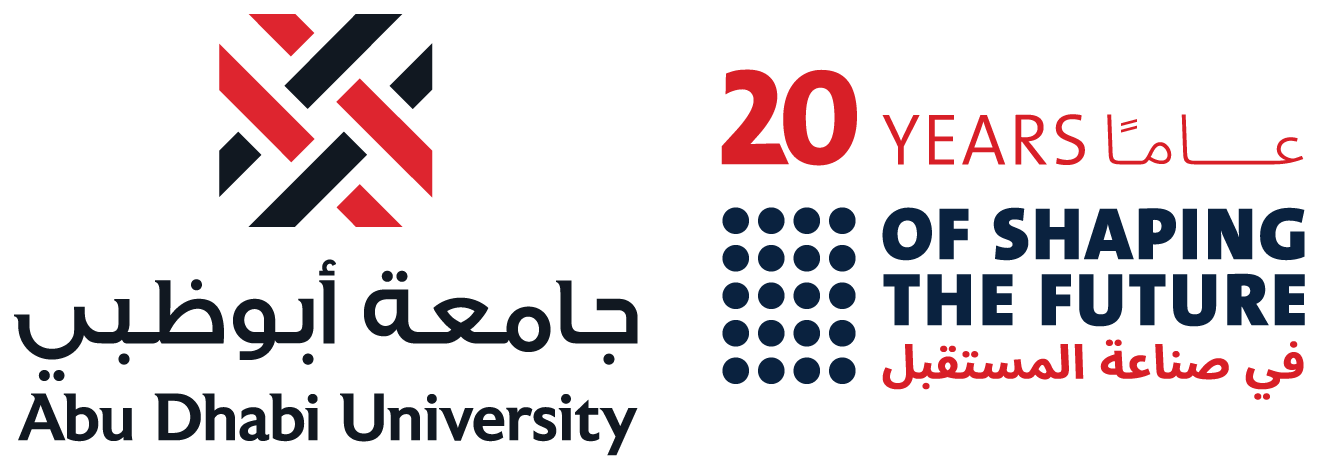ADU Gives Students A Remote hands-on Laboratory Experience
ADU has integrated modern technologies into its curricula including virtual reality (VR), augmented reality (AR), as well as 3D technology, to allow engineering students to continue their practical work remotely.
ADU has integrated modern technologies into its curricula including virtual reality (VR), augmented reality (AR), as well as 3D technology, to allow engineering students to continue their practical work remotely.
Ahmed Al Hammadi, a student in Master of Science in Information Technology program at ADU’s College of Engineering (CoE), presented a number of technologies as part of his academic research under the supervision of Dr. Modafar Ati, Associate Professor of Computer Science and Information Technology at the University. Engineering programs typically rely heavily on mathematics and applied sciences and focus primarily on enhancing the acquisition of practical skills. Practical courses commenced earlier this month, following ADU’s announcement that it is fully prepared for its laboratories and studio classes’ safe return to campus in line with strict protocols and social distancing measures outlined by the government, to ensure the health and safety of all students and faculty.
The VR, AR and 3D technology that student Ahmed Al Hammadi presented with the support of ADU’s professors and teaching assistants and under the supervision of Dr. Modafar Ati, sought to propose practical solutions to provide an immersive learning experience for those studying remotely, enabling students to view laboratories in a 3D and 360-degree manner, in addition to using VR and AR to use the labs’ equipment and machines in a way that simulates and enables a deeper understanding of their work mechanism. The idea of the VR technology is that students will be wearing glasses that allow them to have a feel of an interactive real-laboratory experience and attend practical application lectures related to their major.
The AR applications on the other hand, rely on adding models or video clips to give students a more realistic experience, where they can participate in practical laboratory work and review various tools used with a 360-degree technology, which is available through smart phones.
Dr. Hamdi Sheibani, Dean of the College of Engineering at Abu Dhabi University affirmed that ADU was delighted to have distinguished and innovative graduate Ahmed Al Hammadi visit the campus and is proud of his positive contribution towards his University and fellow students. Dr. Sheibani pointed out that the CoE is keen to further enhance the students’ practical and applied experience, and that such technologies would allow students who were not able to personally attend the laboratories to gain the necessary practical and applied knowledge needed to progress in their academic journey. He also added that the University is working on developing a comprehensive strategy to deal with such challenges and develop integrated solutions accordingly.
Ahmed Al Hammadi commented: “I am delighted to be at ADU amongst my peers and professors to demonstrate how innovative new technologies can enable students to complete their practical work in an effective and realistic way. Practical work plays an integral role in refining students' skills and building their knowledge, in addition to giving them a competitive edge to meet the future requirements of the labor market and contribute to innovating solutions that address market challenges and enhance business sustainability.”
ADU identified that laboratory access is one of the key issues facing students enrolled in the CoE, with 25% of students citing this as a barrier to the completion of the practical and theoretical components of their studies. This figure represents international students who have been unable to attend classes in person due to travel constraints, in addition to UAE-based students who reside outside Abu Dhabi. Additionally, the figure also represents students with pre-existing health conditions who have been unable to attend classes in the interest of safeguarding their health and wellbeing. ADU has worked diligently to find a solution to these issues and to help students seamlessly continue their studies without delay.
In line with its efforts to provide students with a holistic learning experience remotely, the University has developed 360-degree imaging videos, which are then sent to the students ahead of classes to provide them with a visual representation of the laboratories, supporting them during virtual sessions.
Moreover, Ahmad Al Hammadi had previously designed the first mobile application of its kind known as the “virtual museum”, which showcases museums and their offerings through a virtual experience. The application was designed under the supervision of Dr. Mohammed Ghazal, Professor and Head of the Engineering in Electrical and Computer Engineering.
